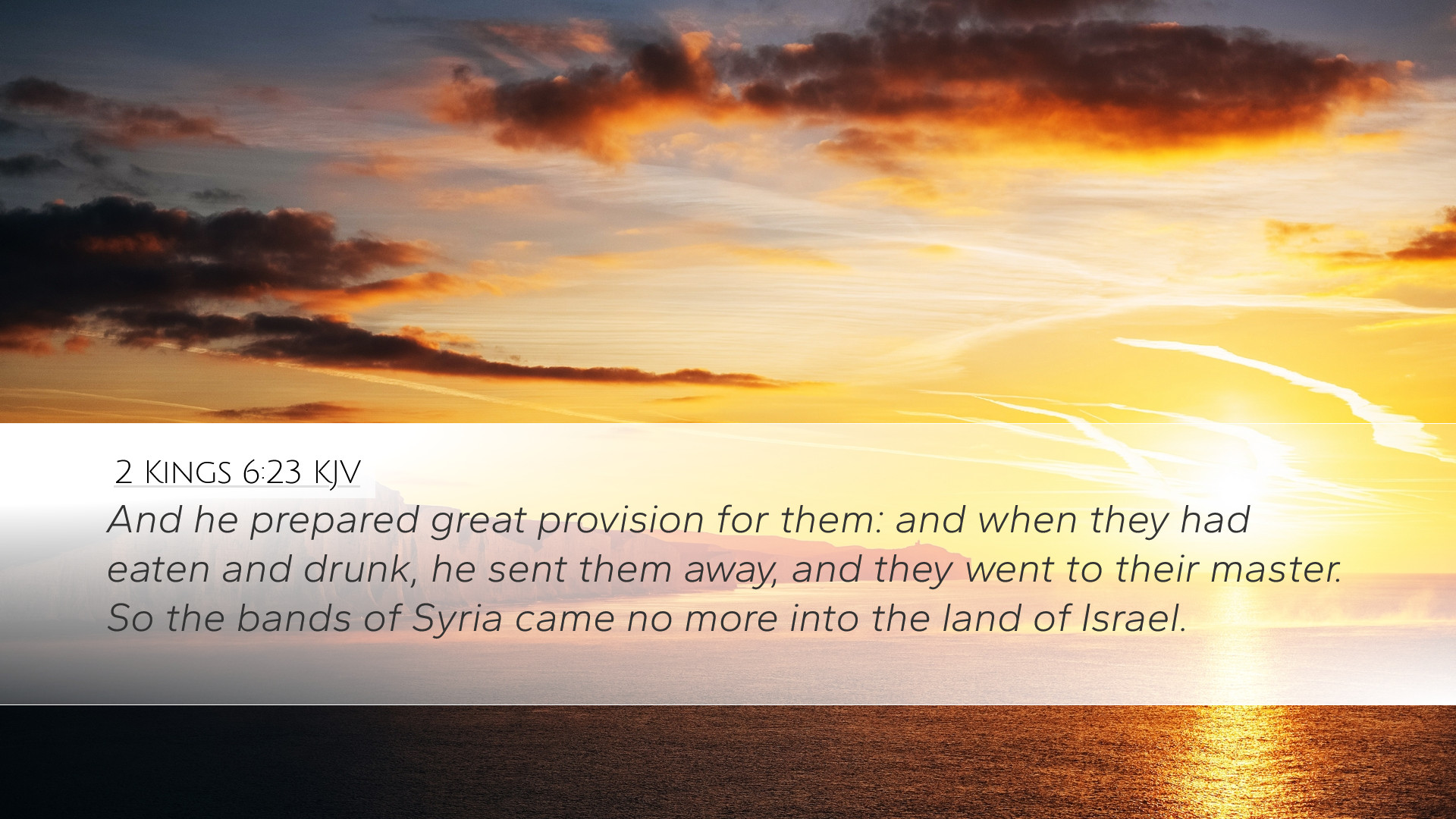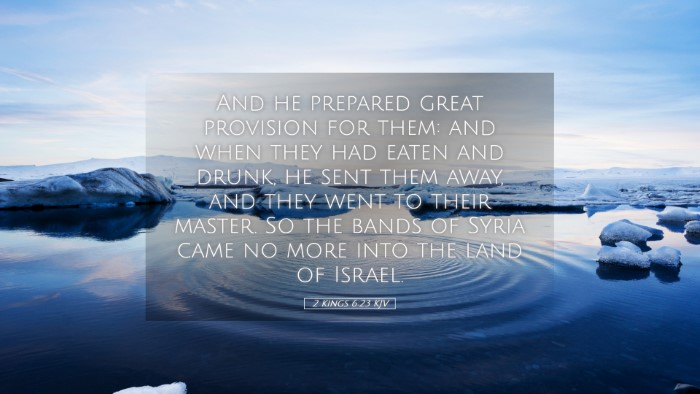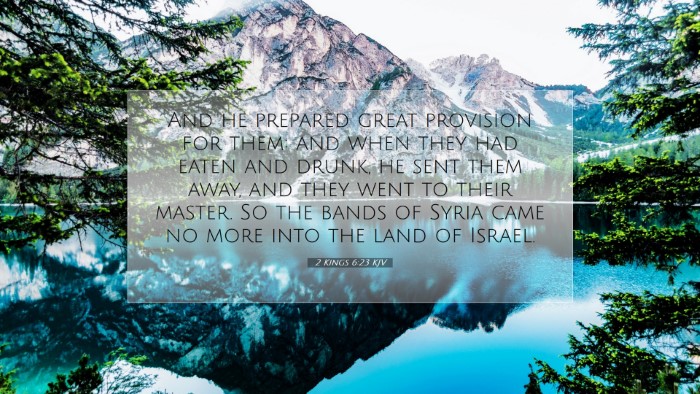Commentary on 2 Kings 6:23
The verse 2 Kings 6:23 states, "And he prepared great provision for them: and when they had eaten and drunk, he sent them away, and they went to their master: so the bands of Syria came no more into the land of Israel."
Contextual Background
This passage occurs in a broader narrative where the prophet Elisha plays a pivotal role in the ongoing conflict between Israel and Syria. In the preceding verses, Elisha reveals the Syrian king's plans to Israel, giving the Israelites a significant advantage.
Theological Insights
The act of preparing a feast for the captives underscores the themes of mercy and divine providence. Elisha’s actions reflect not only a miraculous intervention but also the heart of God in offering grace even in the face of enmity.
Mercy Over Judgment
Elisha's decision to feast the Syrian soldiers rather than retaliate highlights a profound biblical principle: mercy triumphs over judgment (James 2:13). This moment signifies an opportunity for reconciliation and peace, contrasting starkly with the hostile context.
Divine Provision
Matthew Henry comments on the act of providing sustenance, noting that it illustrates God's providential care. Just as God provides for His people, Elisha provides for those who were once enemies. This provision serves not merely as a physical sustenance but as a spiritual metaphor for God's grace.
Transformative Encounter
The experience of the Syrian soldiers serves to transform their understanding of Israel and its God. Adam Clarke emphasizes that this encounter demonstrates that the true power of Israel lies not merely in military might but in the mercy and goodness of its God.
Commentary from Public Domain Sources
Matthew Henry: Henry elaborates on the nature of Elisha's actions, suggesting that the prophet recognized an opportunity to display God's character, delineating a path from warfare to peace. By feeding the enemy, he not only fulfilled a practical need but also intended to turn their hearts towards God.
Albert Barnes: Barnes focuses on the implications of sending the soldiers back to their master after the feast. By allowing them to return alive and well, Elisha's act diminishes animosity, fostering an environment where tensed relationships could potentially soften. He concludes with the observation that understanding leads to peace, as the Syrian bands “came no more into the land of Israel.”
Adam Clarke: Clarke points out the symbolic nature of the provisions provided. He insists that the essence of planting seeds of peace is through acts of kindness. The meal served as an envoy of goodwill, potentially altering the future course of relations between Israel and Syria by instilling a sense of dread mixed with respect towards Israel and its God.
Lessons for Pastors and Theologians
- Embrace the Ministry of Reconciliation: Leaders in ministry must champion the cause of reconciliation, seeking to bring peace rather than conflict in their communities.
- Exemplify God’s Grace: This passage serves as a reminder for Christian leaders to model the grace of God through acts of kindness, even towards those who oppose us.
- Understand the Power of Provision: Practicing hospitality and generosity has the potential to soften hearts and transform adversarial relationships into ones characterized by respect and friendship.
Conclusion
In conclusion, 2 Kings 6:23 serves as a rich lesson in the transformative power of mercy, grace, and divine provision. Elisha stands as a model of how to respond to hostility not with retaliation but with compassion. This passage urges leaders, scholars, and believers alike to live out and communicate the grace of God, fostering peace in a world that often leans towards conflict.


